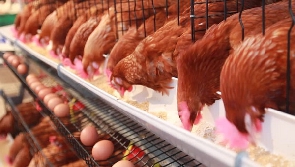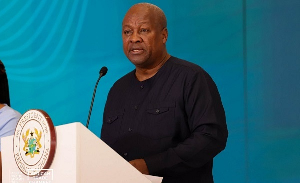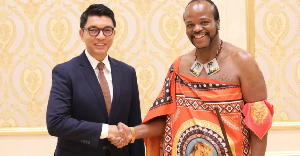The Director of the Animal Production Directorate of the Ministry of Food and Agriculture, Edwin Bekoe, has indicated that the Ministry is poised to reduce the importation of chicken by 70 percent by 2025.
He has indicated that Ghana is currently importing $380 million worth of meat products annually with local meat production accounting for only 17 percent of the country’s meat requirements.
These statistics, he said, are disheartening and, so, an indictment on the country, hence the introduction and implementation of Rearing for Food and Jobs (RFJ) initiative by the government.
Mr. Bekoe, speaking in an interview on the Yen Sempa morning show on Onua FM on Friday, March 19 said the RFJ policy enrolled in 2017 is focusing on addressing the challenges confronting the country’s livestock industry.
He reiterated that the government is determined to improve breed productivity and production, development of infrastructure (housing, plant and equipment, slaughtering, processing and marketing facilities), feed production and conservation of forage, animal health and disease control and development of communal grazing lands.
All these programmes, according to him, are geared towards increasing the local production whilst maintaining a success would be made but that is a gradual process.
In the same vein, he said the Planting for Food and Jobs (PFJ) programme is also empowering farmers to produce more animal feed to salvage the seasonal inadequacy of feed, both in quantity and quality.
Mr. Bekoe is positive that per the success chalked so far by the implementation of RFJ, Ghana is likely to reduce the importation of chicken by 2025.
“Our target right now is that by 2025 we would reduce the import of chicken by 70%; the structures are there and we have the people, we experienced farmers who can do this.
“It’s just a matter of supporting our farmers and we would be going; for instance the Planting for Food and Jobs especially the crop module has produced enough maize and soya to produce sufficient poultry feed,” he added.
Mr. Bekoe said he is optimistic that with structures laid down by the government and the expertise of the farmers, Ghana would be self-sufficient in poultry industry and meet the country’s chicken consumption demand.
Business News of Friday, 19 March 2021
Source: 3news.com













